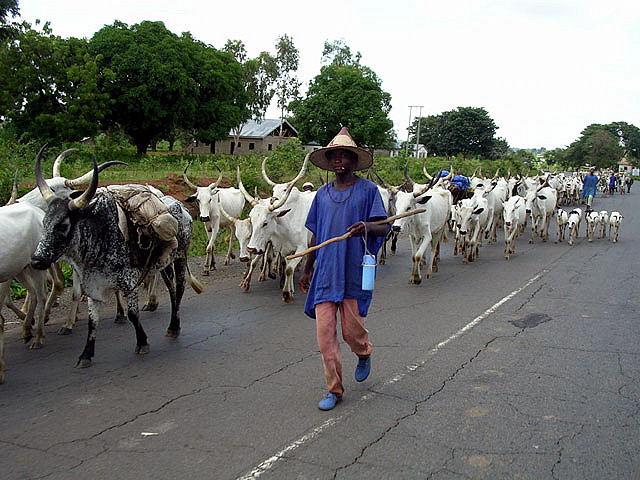President Museveni has issued a sweeping directive banning the free-range movement of Balaalo cattle herders into Northern, Eastern, and North-Western Uganda, citing the practice as “criminal,” destabilizing, and economically harmful.
The Executive Order No. 2 of 2025, dated June 1, is the most decisive government response yet to a problem that has festered for over a decade and triggered widespread resentment in host communities.
The Order builds upon Executive Order No. 3 of 2023, which sought to regulate pastoral migration, but now imposes a total ban on unregulated cattle movement and directs the Attorney General to criminalize the practice in law.
“It is criminal and very unfair to the locals to introduce free-ranging cattle in these areas because they will inevitably trample and feed on people’s crops (Okwonesa),” the President wrote in the 9-page order.
- Lack of fenced grazing areas and permanent water sources even where land was acquired.
- Unresolved land tenure disputes in communal areas, leading to internal conflicts and violence.
- Unregulated fencing, which blocks access to vital natural resources like rivers and fishing points.
- Unfair crop destruction, which threatens food security and peace in host communities.
The enforcement of this order is expected to begin with joint operations involving district officials, law enforcement, and land boards.
While Balaalo leaders have not officially responded, previous attempts to remove their cattle have led to resistance and calls for compensation.
Museveni, however, made clear that the government would not tolerate further delays or excuses.
“By not decisively acting, it encourages new influx. These colonial-style unfairnesses should not and cannot happen under the NRM.”
The Balaalo — predominantly cattle-keeping communities from southwestern Uganda — have for years migrated into northern and eastern regions in search of pasture and water.
However, their presence has increasingly triggered land disputes, crop destruction, and violent clashes with indigenous communities, particularly in Acholi, Lango, Teso, and West Nile sub-regions.
In recent years, leaders from the north and east — including Members of Parliament and cultural institutions — have demanded the expulsion of the herders, accusing them of illegally acquiring customary land through fraudulent sales; fencing off communal lands and water sources like the River Nile; destroying subsistence farms through free-range grazing and importing livestock diseases such as Foot and Mouth Disease.
In November 2023, a confrontation in Otuke District between locals and Balaalo herders led to injuries and police intervention.
In Pader, Amuru, and Nwoya, leaders reported crop losses and tension due to herders allegedly fencing off large swaths of land.
Meanwhile, district leaders in Teso and Bukedi have voiced alarm over land sales facilitated by individuals without family or clan consent — sparking intra-community conflicts.
Museveni ordered the immediate removal of all Balaalo cattle from the affected regions.
He also set up a verification committee to assess the claims of herders who allege to have lawfully purchased land, installed fencing, and provided permanent water sources without interfering with community rights.
However, this review will only begin after the herds have vacated, to eliminate what the president called “the tension that their presence is generating.”
“Let them sell the cattle that have multiplied on account of the free pasture they have accessed… and buy smaller pieces of land in the areas where they traditionally live,” Museveni stated.
Controversial Land Deals
The president expressed concern over the sale of clan land to outsiders, often without consent from all family members, fueling long-term disputes.
He warned that buyers who acquired land through such questionable means would not be protected, even if a humanitarian program is considered for evictees.
“Anybody who sold his land should not be entertained, even when we may evolve a compassionate ex-gratia programme for these evictees,” he added.
Internal Colonialism
While reaffirming Uganda’s commitment to the East African Community’s ideals of free movement of goods, services, labour, and capital, Museveni cautioned against using Pan-Africanism to justify what he termed “internal colonialism” — where mobile communities displace sedentary populations.
He emphasized that rural-to-rural migration, especially involving unplanned agricultural activity, poses a significant threat to social cohesion and regional integration efforts.
“We must never frighten any of our communities with the fear or occurrence of internal colonialism where some groups trample on the legitimate rights of others. Those mistakes will not be permitted under the NRM,” he wrote.
The president acknowledged concerns raised by East African neighbours regarding land-grabbing fears if the federation permits unregulated rural settlement across borders.
He proposed that while urban migration and trade should remain open, rural agricultural settlement should be regulated or prohibited to protect national and regional harmony.
Constitutional Roots and Land Governance
Museveni also invoked the 1995 Constitutional reforms, which shifted land management from the Uganda Land Commission to District Land Boards, arguing this was meant to prevent central-government interference in community land matters.
“Imagine the noise around this issue of Balaalo if the national Uganda Land Commission was the one involved. However, we had foreseen that trap and avoided it,” he noted.
Key Directives from the Executive Order No. 2 of 2025
- Immediate eviction of all Balaalo cattle from the Northern, Eastern, and North-Western regions
- Criminalization of unregulated free-range cattle grazing
- Audit and verification of land ownership and infrastructure by a presidential committee
- Prohibition of fencing that blocks access to community water sources
Promotion of intensive farming models like the “Nyakaana model” over land-extensive herding




